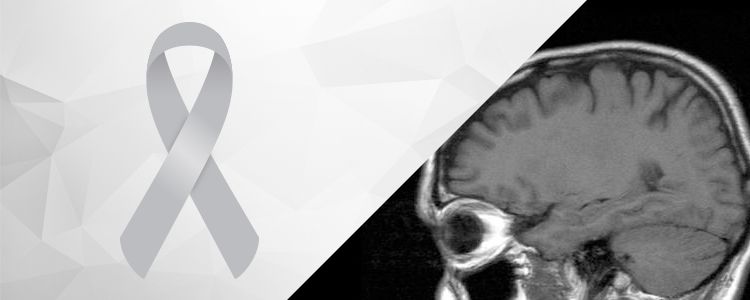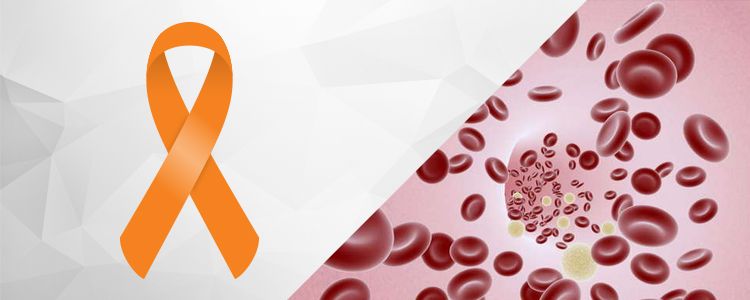The existing issue on cannabis as a potential cure for certain illnesses has been a debate for several years. But is cannabis cancer treatment a possible new method to battle cancer? Many studies are showing positive signs that this could be true and it could be the future.
The research surfacing indicates that medical cannabis can reduce cancer cell growth and this surely cannot be ignored. Especially with statistics showing 8.2 million people died in 2012 from cancer, new research, and treatment for these diseases should be the focus for everyone.
The global health industry is still pushing against the idea because of the stigma behind cannabis or most commonly called marijuana.
The good news is the battle on raising the awareness of medical cannabis is now reaching new heights as advocates and medical professionals in different parts of the world are forcefully stating their case…
If this plant, with all its medicinal properties, can potentially help prevent and treat Cancer patients… how can we ignore it?
There are currently many studies and medical trials which have shown promising results for cannabis as a potential cure for cancer.
How Cannabis Can Treat Cancer
Since the body naturally has cancer cells present, using cannabis could be a preventative substitute to medicine by making sure your natural killer cells destroy some of the cancer cells leaving your body at normal healthy levels.
Here is a quick rundown about cannabis as an alternative cure to cancer according to National Cancer Institute:
- Cannabinoids, a chemical component found in cannabis activate specific receptors throughout the body that prompts the production of pharmacologic effects in the central nervous system and the immune system.
- Cannabinoids that are available commercially, such as dronabinol and nabilone, are considered approved drugs that are usually used in treating cancer-related side effects.
- Cannabinoids have been found to have potential benefits in the treatment of cancer-related side effects.
It is important to understand the different compounds which are derived from the plant and used in medical studies. Two of which are below:
- THC – Tetrahydrocannabinol which is the main active ingredient of cannabis which is responsible for the physiological effects.
- CBD- Cannabidiol which is one of many active cannabinoids identified in cannabis. It is considered to have a wide scope of potential medical applications.
James W. Forsythe, MD author of the book, Stoned: The Truth About Medical Marijuana and Hemp Oil, tells a story about Rick Simpson, a Canadian who has been credited with curing cancer with his ‘hemp oil’. In the book, it is explained how THC and CBD molecules work and why they are both necessary.
Simpson uses 4:1 ratio THC to CBD oil as maintenance to ‘mop-up’ lingering cancer cells after treatment. Patients rub the oil on their gum twice a day to induce this ‘search and destroy’ effect of cleaning up the system.
Dr. Forsythe explains that THC and CBD enter cancer cell membrane and enhance secretion of ceramide. Ceramide distrusts cell mitochondria and oxygen supply killing the cancer cell during the process.
According to Dr. Forsythe, both THC and CBD needs to be present for the above to take effect. Neither of the two does it on its own. This is a great example of the so-called entourage effect.
To find out more about the entourage effect of cannabis watch the below video with Dr John Teh, Cannabinoid Clinician explaining it:
In the book, it is estimated that a whopping average of 70% of cancer patients survive after using hemp oil. This is incredibly high, considering that the average survival rate using only traditional ways of chemotherapy and radiation is only 2%.
Simpson, who the book is about, believes that of the 30% who do lose their battle with cancer under his product’s care, are due to the treatment not having enough time to repair the damage already done. This is largely due to not being able to turn back major organ failures that are so advanced at the time of proceeding treatment.
These numbers seem to be very close to the results that Dr. Forsythe and his team are achieving at his organization at the Century Wellness Clinic. He is an extremely rare type of physician, an ‘integrative medical oncologist’. In other words, he is licensed to administer mainstream drugs including chemotherapy as well as natural homeopathic remedies.
Dr. Forsythe uses medical Cannabis as part of his treatment to his patients achieving an incredible 65% five-year remission or the so-called ‘“cure” rate of advanced Stage 4 cancer patients. This is all happening in Reno, in the US, while the national average “cure” rate of cancer patients in such advanced stage sits at 2% as I mentioned above.
“Imagine the huge number of cancer patients who might be dying every day, primarily because authorities refuse to study the issue and ultimately to legalize the substance.” James W. Forsythe – Author of the book Stoned – The Truth About Medical Marijuana and Hemp Oil.
He explains that the most effective natural cure likely has existed for many thousands of years. It is, THC, the Cannabinoid in Cannabis that gets you high.
THC seems to specifically target cancer cells even before they get out of control. Cancer cells are naturally occurring in our body, everyone over 30 has them. They are not as much of a threat until they begin feeding on glucose (i.e. sugar) while the ‘order’ from the brain (that every other cell follows) is to stand by and don’t eat .. if this all makes sense.
So the Cannabinoids attached to the cancer cell start working on killing the cancer cell like ninjas. If one thing we know about cancer, it is that it is very resilient and unfortunately very resourceful. So very advanced methods of killing cancer cells are based on ‘starving them’ by taking sugar or starch (major sources of glucose in the blood) out of people’s diet.
The challenge with this is that even if you take cancer’s normal food out, it might be able to ‘mutate’ in a way that it switches food. Why I am writing this, is to demonstrate that it is tough to kill.
Anyhow, it has its Achilles heel as it reproduces and ‘grows’ aggressively it needs a lot of food. Respiration and pretty much all energy production in the cells happens in the mitochondrion. Cannabinoids basically ‘pull the plug’ in cancer cells by messing with their mitochondria and taking the cancers out extremely effectively and quickly.
“One of the advantages of cannabinoid-based medicines would be that they target specifically tumor cells. They don’t have any toxic effect on normal non-tumoral cells. This is an advantage with respect to standard chemotherapy that targets basically everything.”
– Dr. Christine Sanchez
Microbiologist, Complutense University, Madrid Spain
Now, let’s take a look at the different types of cancers and their cannabis-related studies.
Brain Cancer

The brain, as part of the central nervous system, is the main control center for vital functions of the body, including speech, movement, memory, and more. Brain cancer or malignant tumour develops from cells found in the brain which can impact the nervous system in various ways.
Back in 2004, there were numerous reports about the use of chemical cannabinoids in treating a type of brain tumour called glioblastoma multiforme.
A study published in the British Journal of Cancer, conducted by the Department of Biochemistry and Molecular Biology at Complutense University, determined that Tetrahydrocannabinol (THC) and other cannabinoids inhibit tumour growth.
This study was responsible for the first clinical study dedicated to determining cannabinoid antitumoral action. Cannabinoid delivery was safely achieved with zero psychoactive effects.
Other studies that find cannabis effects against brain tumors are
- “Antitumor Effects of Cannabidiol, a Non-Psychoactive Cannabinoid, on Human Glioma Cell Lines” which appeared in The Journal of Pharmacology And Experimental Therapeutics.
- “Active Compound in Marijuana, against Ouabain-Induced In Vivo Excitotoxicity” which was seen in The Journal of Neuroscience.
- “A Combined Preclinical Therapy of Cannabinoids and Temozolomide against Glioma” which was published in the journal Molecular Cancer Therapeutics.
Breast Cancer

Malignant tumours or cancer cells found to have started in breasts are considered breast cancer. Except for skin cancer, breast cancer is considered the most common cancer found in women.
There are four main studies that show the positive effects cannabinoids have against killing breast cancer cells:
- “The endogenous cannabinoid anandamide inhibits human breast cancer cell proliferation”,
- “Cannabinoids reduce ErbB2-driven breast cancer progression through Akt inhibition”,
- “Anti-tumor activity of plant cannabinoids with emphasis on the effect of cannabidiol on human breast carcinoma”,
- “Pathways mediating the effects of cannabidiol on the reduction of breast cancer cell proliferation, invasion, and metastasis” .
They all concluded that cannabidiol (CBD) inhibits human breast cancer cell proliferation and invasion, while also finding that CBD significantly reduces tumour mass.
Professor Cristina Sánchez has done extensive work to understand and exploit cannabinoids as potential antitumoral agents in breast cancer. Watch her talk below explaining how THC kills cancer cells:
Lung Cancer

Lung cancer is found to be the leading cause of cancer deaths in the United States to date. About 220,000 people are diagnosed with lung cancer annually, and more than 157,000 dies of the illness.
A study published in the journal Oncogene by Harvard Medical School’s Experimental Medicine Department determined that Tetrahydrocannabinol (THC), the primary cannabinoid of marijuana, inhibits epithelial growth factor induced in lung cancer cell migration and more. They also stated that THC should be explored as novel therapeutic molecules in controlling the growth and metastasis of certain lung cancers.
Other recent notable studies which show cannabis inhibiting tumor growth within the lungs are
“Cannabinoid receptors, CB1 and CB2, as novel targets for inhibition of non-small cell lung cancer growth and metastasis” and “Cannabidiol inhibits lung cancer cell invasion and metastasis via intercellular adhesion molecule-1.”
Prostate Cancer

Where women are mostly impacted by Breast Cancer, it seems Prostate Cancer is the biggest killer for males with more than 1.1 million cases of prostate cancer were recorded in 2012 worldwide.
The disease is most common in older men, and in Australia, New Zealand and in the U.S., about one out of five men is diagnosed with prostate cancer.
A study titled “Cannabinoids inhibit prostate carcinoma growth in vitro and in vivo: pro-apoptotic effects and underlying mechanisms”, determined that cannabinoid receptor activation induces prostate carcinoma cell apoptosis. Determining that cannabidiol significantly inhibited cell viability.
Two other studies which found positive effects using cannabis as treatment for prostate cancer are,
and
Blood Cancer

Blood cancers is called Leukaemia and as defined by the Leukemia Foundation,
| Leukaemias are cancers that affect the blood and bone marrow. Leukaemia starts in the bone marrow where developing blood cells, usually white cells, undergo a malignant change. The cells multiply in an uncontrolled way and crowd the marrow, affecting the body’s ability to make normal blood cells. |
It is predicted that more than 3300 people will be diagnosed with this disease this year and it can be a rapid onset once it hits your system.
So how can Cannabis help? Well, a study titled “Cannabinoid Receptor-Mediated in Mantle Cell Lymphoma” recently showed that cannabinoids reduce the growth of the leukemia cells.
While the study “Tetrahydrocannabinol-induced apoptosis in Jurkat leukemia T cells is regulated by translocation of Bad to mitochondria” conducted by the Department of Pharmacology and Toxicology by Virginia Commonwealth University determined that cannabinoids induce apoptosis in leukemia cells.
Liver Cancer

Primary liver cancer, or cancer that starts in the liver, accounts about 2% of cancers in the United States, but up to half of all cancers in certain undeveloped nations. This growing medical concern is mainly due to the prevalence of hepatitis which predisposes a person to liver cancer.
A study published by the US National Library of Medicine determined that THC as main cannabinoid component in marijuana reduces the viability of human HCC cell lines (Human hepatocellular liver carcinoma cell line or cancer cells developed in the liver) and reduced their growth.
Pancreatic Cancer

Unfortunately, the Pancreatic cancer has a low survival rate due to late diagnoses. It is the ninth most common cancer for men and tenth for women in Australia.
Looking at this cancer worldwide, Pancreas cancer made up 4% of all cancers diagnosed in 2012 with cancer which is approximately 330,000 people.
So how can Cannabis impact these numbers?
In a study titled “Cannabinoids Induce Apoptosis of Pancreatic Tumor Cells via Endoplasmic Reticulum Stress–Related Genes” published in the American Journal of Cancer, researchers have found that cannabinoid receptors are expressed in human pancreatic tumor cell lines and tumour biopsies at much higher levels than in normal pancreatic tissue.
Results showed that with the use of cannabinoids the process of programmed cell death would occur, and in this case, we are referring to the death of cancer cells that developed in the pancreas. They also reduced the growth of tumour cells and inhibited the spreading of pancreatic tumour cells.
The Future
Summing up all the studies done looking at how Cannabis can treat cancer the common ground is that it has the potential to reduce or stop cancerous cell growth.
So with the increasing number of studies and medical trials on the health- related benefits of cannabis we hope that these studies rapidly reach policy makers around the world, so action can be taken to legalize Cannabis for Cancer treatment.
Policy makers and pharmaceutical leaders around the world are actually currently trying to make ends meet regarding this issue at hand.
Even if cannabis might be proven to have its positives weigh more than the negatives, still, the biggest challenge will be on eradicating its social stigma.
| Disclaimer: These are studies and medical trials done and supervised by medical professionals. Readers with cancer symptoms and cancer patients are not advised to self-medicate as studies discussed deal with isolated chemical compounds and are conducted with correct concentration. |
Are you personally open to the idea of cannabis as an alternative treatment for cancer?
We would like to know your thoughts! Share it on the comments box below!
- How to Use Waxmaid Honey Pen? - April 9, 2024
- How To Choose The Best Electric Dab Rig For Christmas - December 7, 2023
- Maintenance Matters: Keeping Your Glass Water Bong in Pristine Condition - October 9, 2023


